Prabhakar's ‘revolutionary rebuttal’ bombards the Maoist Headquarter
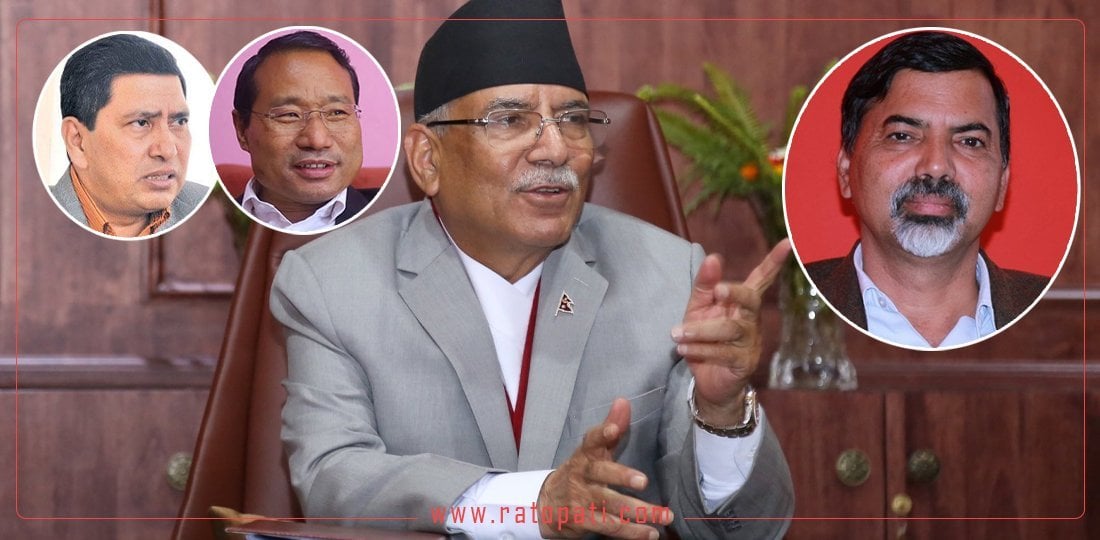
Kathmandu, August 16 - Deputy General Secretary Janardan Sharma 'Prabhakar,' who presented a distinct proposal at the recent Standing Committee meeting of the CPN Maoist Center, has ended up isolated. He became a "lonely Jupiter" as other leaders did not openly support his proposal. Nonetheless, Sharma's proposal will be discussed at the next Central Committee meeting.
On August 10th, Sharma submitted a 14-page proposal outlining three leadership options for the party. The meeting, which took place over five days at the central office in Paris Danda, decided to include Sharma's different proposals for further consideration.
The decision from the meeting led leaders to claim that the internal conflict within the party has been temporarily resolved. Prior to the Standing Committee meeting on Thursday, Chairman Pushpa Kamal Dahal 'Prachanda' discussed potential resolutions to the conflict in a meeting with office bearers. During this discussion, Sharma argued that his differing proposals should be taken to the lower levels for broader discussion.
However, there was a period of questioning and answers between Chairman Prachanda and Deputy Secretary General Sharma regarding the decision to take internal matters public. Prachanda expressed his dissatisfaction that internal discussions were made public. After Sharma did not relent, Prachanda agreed to consider the differing proposals along with the party's decisions for further discussion.
Secretary Ram Karki claimed that an agreement had been reached to resolve contradictions within the party. It was decided that leaders up to the Deputy General Secretary level would engage in discussions across all provinces to review Sharma’s proposals. Karki stated, “The Chairman rejected the accusations made by Sharma in the meeting. Sharma has indicated that he just expressed his feelings. To address this, it is a matter of investigating the issue from an official level and clearing up misunderstandings.”
In his proposal, Sharma criticized the shortcomings of Karl Marx, Engels, Lenin, Stalin, and Mao in terms of party strengthening, development, and prosperity. He also accused the Maoist party and movement of internal struggle and a two-line struggle, where one side blindly supports and the other understands it as a class struggle.
Sharma proposed three options based on recognizing party building and understanding transformation and development in the current context, while respecting the old and encouraging the new:
Transfer of Leadership: Utilize the remaining time of Chairman Prachanda’s contribution to transfer the role of leading the party organization, along with responsibility for power and ideological work, to a person he selects.
Leadership Transfer: Chairman Prachanda would retain ideological authority and power in a protective role, while current officials act as advisers, focusing on departmental work, monitoring, evaluation, schooling, training, and transferring executive organizational leadership to younger members.
Selection of Leadership by Direct Election: Dissolve the current Central Committee, form a convention organizing committee under Prachanda’s coordination, and set a date for selecting new leadership through direct election at the convention.
After the meeting concluded, Chairman Prachanda stated that claims of a party split were completely unfounded. Speaking to the media, he urged the dispelling of such illusions.
There had been considerable noise and confusion regarding the potential breakup of the party. Prachanda dismissed these fears, emphasizing that the party remains united and that accusations against Sharma were incorrect.
A Standing Committee member stated that Prachanda expressed dissatisfaction with Sharma for taking internal matters public. The member indicated that an official investigation into the matter would be conducted.
The meeting addressed how to handle the differing opinions held by Sharma during the nearly three-hour meeting, how to unite the party, and how to resolve conceptual and organizational issues. Spokesman Agni Prasad Sapkota stated that the discussion was grounded in democratic centralism.
Sapkota believed that the discussions and debates held among office bearers and the Standing Committee would strengthen the party. He noted that there were no issues in addressing the ideological and political concerns raised by Sharma.
Discussions about leadership will continue, and Sapkota proposed creating a political document by gathering suggestions and consultations at the provincial level for party formation and development. Sharma also emphasized that his proposal aimed to strengthen leadership rather than weaken it, according to Sapkota.
It has been decided to hold joint discussions in all seven provinces, as well as in Special and Liaison Coordination Provinces, Prabas, Central Agency, and sister organizations/Front throughout August to gather opinions and suggestions regarding the decisions made in the meeting.
What is Maoists’ internal conflict?
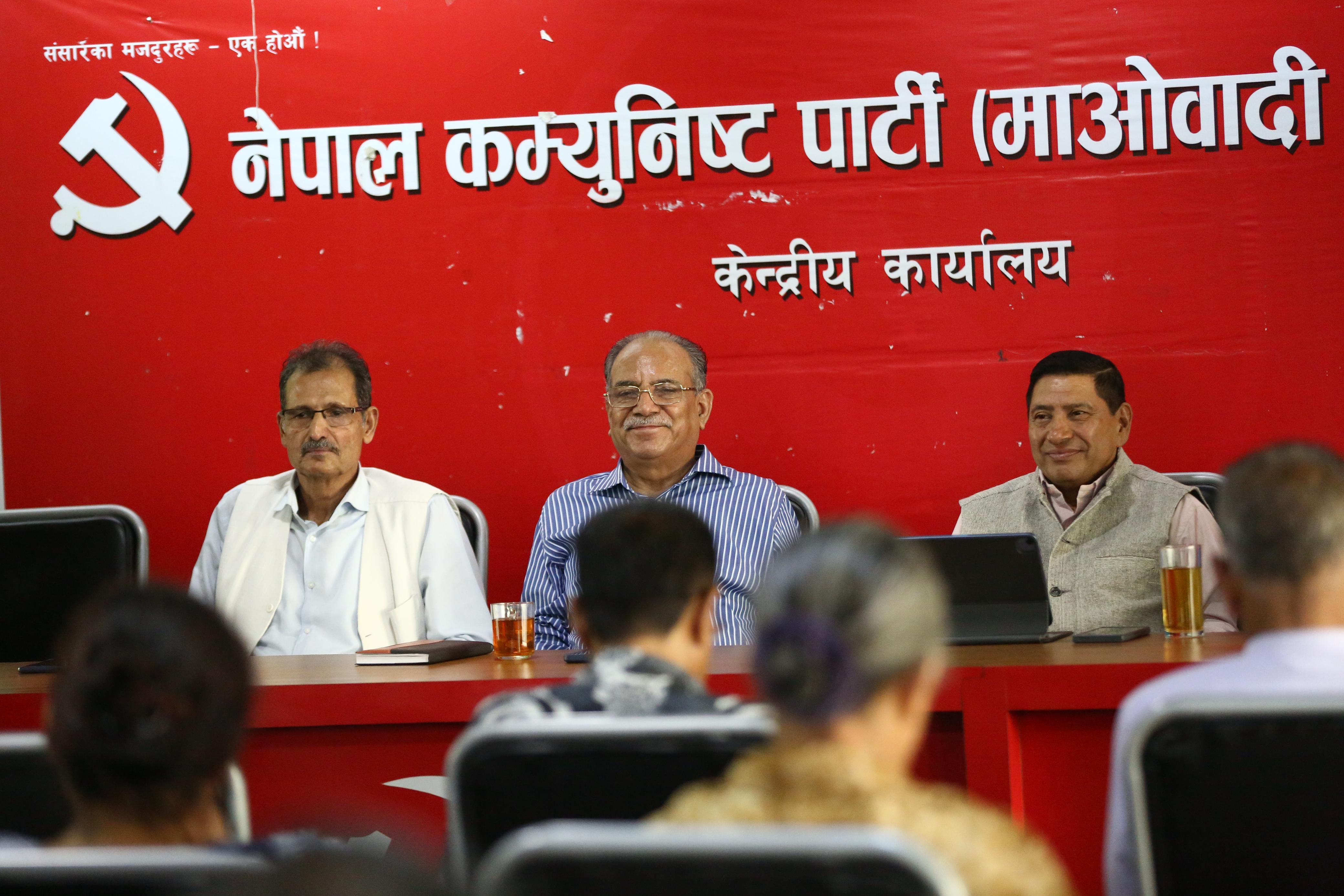 The three-line and two-line conflicts within the Maoists have persisted since the People's War. Following the peace process, these conflicts intensified. At that time, there was a heated debate about whether the party should pursue a public uprising or a peaceful strategy.
The three-line and two-line conflicts within the Maoists have persisted since the People's War. Following the peace process, these conflicts intensified. At that time, there was a heated debate about whether the party should pursue a public uprising or a peaceful strategy.
Mohan Baidhya 'Kiran' advocated for public revolt, while Baburam Bhattarai supported a peaceful struggle. Supremo Prachanda adopted a mixed approach, incorporating elements of both perspectives. However, Prachanda failed to resolve the internal conflict permanently. At times, he leaned towards Baidhya and other times towards Baburam, strategically maneuvering to retain his leadership position.
As a result, the party experienced a split in June 2009. Leaders have pointed out that the Maoist movement has been continuously undermined by unstable organization, factionalism at the leadership level, suppression of differing opinions, opportunism, and a capitalist lifestyle.
While uniting with the UML was considered necessary, various party forums concluded that the merger lacked adequate ideological and theoretical discussion. During the Central Committee meeting in the second week of July last year, most leaders, including Deputy General Secretary Sharma and Barshaman Pun, criticized the party's policies and leadership. Additionally, the Maoist Center launched a three-month campaign for party transformation.
Based on suggestions from local leaders and activists, a legislative drafting committee was formed under Vice- Chair Pampha Bhusal's leadership. Sharma, a member of this committee, submitted a nine-point proposal for party and leadership transformation during the Standing Committee meeting in the last week of January 2024.
Sharma's proposal called for the party to be governed by the Leninist principle of democratic centralism, direct election of central officials from local committees to strengthen the organization, adherence to rules and procedures, changes in the working style and lifestyle of leaders, and increased importance placed on people’s autonomy. He insisted that these issues be included in the legislation.
When his proposal was ignored by office bearers, the Standing Committee, and even the Central Committee in the last week of January, Sharma expressed his frustration. During the first legislative session at Kamaladi in the first week of February, it was decided to directly elect the Central Committee, with a special convention determining decisions for office bearers and holding internal discussions.
Sharma strongly disapproved of the leadership's response to his proposal on party transformation. Instead of providing assistance, he felt the leadership exacerbated the situation with biased politics, and rumors began circulating that the party was on the verge of division.
Prabhakar, the lone Jupiter
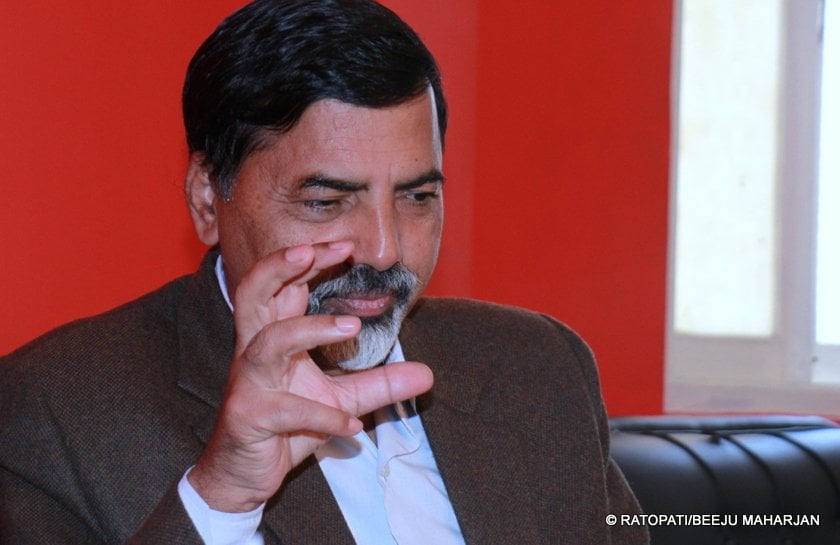
A standing committee member revealed that, although central leaders criticized Prachanda’s policies and leadership, Sharma was left isolated during the closing meeting of the Standing Committee. The member noted that while Sharma's proposal was solid, it did not receive support from other office bearers.
Sharma was the only one to submit a written proposal, countering Prachanda's verbal proposal. Initially, senior Vice-Chair Narayankaji Shrestha, Deputy General Secretary Barshman Pun, Haribol Gajurel, and other leaders supported Sharma’s proposal. However, by the end of the meeting, they all chose to remain silent.
Despite the support Sharma received from Narayankaji and Barshman at the start, no one seemed willing to speak out clearly in front of Prachanda. The member remarked that this situation made Sharma appear like "a lone Jupiter." He questioned how effective party formation could be in such an environment.
The member asserted that although Sharma is in the minority numerically, he has succeeded politically. The courage Sharma displayed regarding the party’s methods, systems, and leadership options is seen as commendable. Another member noted that Sharma’s stature has grown due to the inclusion of his proposals amid considerable pressure.
Despite a consensus on following the direction of 21st-century socialism as outlined by the Eighth General Convention of the Party, leaders have acknowledged significant dissatisfaction with the party’s organizational structure, leadership style, and overall lifestyle.
Why Was a Provincial-Level Meeting Called Instead of a Central Committee Meeting?
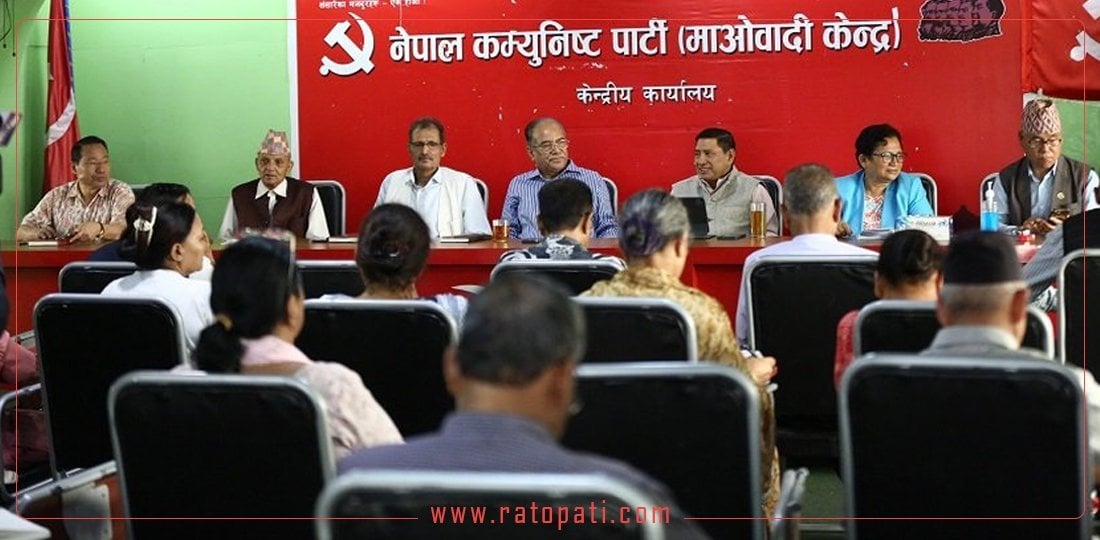
Spokesperson Sapkota stated that a central committee meeting will be held after the office bearers' and standing committee meetings to address issues related to idea synthesis, party building, and future plans. However, the standing committee decided to convene a provincial-level joint meeting to address internal disputes and review the decisions made before calling a full central committee meeting.
Deputy General Secretary Haribol Gajurel announced that the provincial-level meetings, beginning in the first week of August and continuing through the last week, will involve central members from each province, provincial officials, and leaders from special, coordination liaison, prabas, central bodies, and Sister Organizations/Fronts. Leaders up to the Deputy General Secretary, along with Supremo Prachanda, will also participate.
Gajurel explained that the provincial meetings, based on democratic centralism, are intended to prepare a political document by incorporating feedback from grassroots leaders and sister organizations/Front leaders. This approach aims to facilitate the synthesis of ideas and streamline the creation of political documents before the central committee meeting.
The meetings will also address the implementation of projects in 122 local levels won by the Maoists and plan for a central committee meeting in the first week of October to finalize decisions on synthesizing socialist ideas and party formation.
Gajurel, who oversees Koshi province, noted that after dispatching a circular with the detailed action plan and standing committee decisions, provincial in-charges will call joint consultation committee meetings on the specified dates.
In the 2006 Constituent Assembly elections, the Maoists won 220 seats—120 directly and 100 proportionally—without forming an electoral alliance with other parties. By the 2013 Constituent Assembly elections, the Maoists' seat count had decreased to 83. Since then, the party has been in ongoing turmoil, securing only 32 seats in the 2022 House of Representatives elections.
In subsequent federal, provincial, and local elections, the Maoists have struggled to compete independently, often forming alliances with the Congress or UML. The agreement between the Nepali Congress and UML on July 1, which included the agenda of constitutional amendments, has further complicated the Maoists' situation.

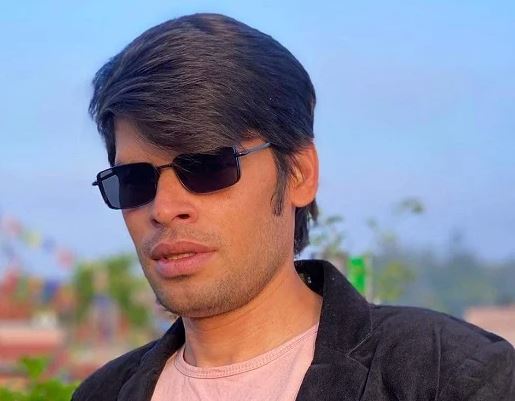








Leave Comment